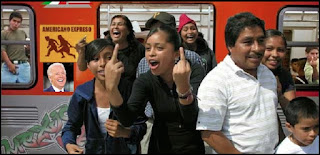Inauguration Day 2025: Denounce the 1967 United Nations Refugee Protocol
Chaos at the southwest border despite any single governor’s efforts reminds us that just one official has the ability to end America’s self-inflicted border crisis: the president. On Inauguration Day, 2025, the new president should start turning the tide by denouncing the 1967 United Nations Protocol on refugees.
Experts generally use two terms to describe non-citizens alleging persecution by their home countries and seeking international protection. A “refugee” is a non-citizen outside of her home country who seeks permission to resettle lawfully in the United States or another safe country. An “asylee” (or asylum applicant) is a non-citizen already in the United States. Today, most asylum applicants enter the United States illegally, then allege persecution in their home countries to thwart U.S. deportation proceedings.
In 1951, the United Nations adopted a refugee treaty for European victims of Nazi and Soviet persecution. A 1967 amendment to that treaty extended its protections worldwide. President Lyndon Johnson agreed to the amendment, known as the 1967 Protocol, and in 1968 the Senate consented. To implement the 1967 Protocol, Congress and President Jimmy Carter approved a 1980 statute called the Refugee Act.
Since 1980, hundreds of thousands of economic migrants have used the Refugee Act to thwart deportation from the U.S. after violating our border or overstaying after a lawful entry. The U.S. asylum process has become a powerful magnet for job-seeking migrants, who although not persecuted at home, abuse the asylum process to get a foothold here and a work permit. U.S. asylum processing has become a massive fraud scheme, built upon the so-called “non-return” doctrine.
“Non-return” (also commonly known in French as “non-refoulement”) is the centerpiece of the 1951 refugee treaty (Article 33). It binds America through the 1967 Protocol. It forbids treaty countries from returning asylum claimants to territories where their lives or safety would be threatened. By agreeing to this vague provision, America sacrificed control over its border with no effective escape clause. During the COVID-19 years, controversy over President Trump’s invocation of public health provision Title 42, Section 265 of the United States Code, to bar U.S. entry of undocumented migrants underscored our nation’s lack of options for suspending the non-return doctrine.
The non-return doctrine rewards meritless asylum claims with U.S. work permits and a long stay despite unlawful entry. No costs to the violator follow loss or abandonment of a meritless claim, or for the burden on taxpayers of litigating thousands of meritless claims every year.Today, the Border Patrol is forbidden from immediately removing any non-citizen border or status violator—even those who have been previously deported—who claims to fear return to the home country or Mexico. Human traffickers learn fast, so claims of fear to thwart deportation are routine, no matter how implausible. With a simple claim of fear, and despite virtually no likelihood of receiving asylum, the violator will be allowed into the U.S., often with family in tow, handed a work permit, and will never leave. Madness.
How can the crisis at our border be stopped? Title 42 is inadequate, and Congress has failed to act. But treaties may outlive their usefulness, so most—including the 1967 Protocol—include a denunciation clause. In the U.S., the president has the authority to denounce a treaty. While the Senate must consent to ratification of U.S. treaties, our Constitution commits foreign affairs and treaty-making—which includes the power to “unmake” treaties—to the president.
The president’s denunciation authority reaches treaties like the 1967 Protocol for which Congress has enacted accompanying domestic legislation. In 2023, human waves violating our border illustrated the utter failure of the 1967 Protocol and U.S. asylum law. Our broken system should be dismantled and rebuilt from the ground up to reflect U.S. border security interests exclusively, with generous presidential derogation authority in addition to Title 42.
In the meantime, decoupling from the 1967 Protocol on January 20, 2025, would be a consequential first step towards recapturing our border and taxpayer resources from the criminal and non-criminal organizations in control today. Among these are federal, state, and local government agencies; private social service and religious organizations; bar associations; academics; shelters; traffickers of fentanyl, children, and women; and indirectly, U.S.-financed international bodies like the U.N. Refugee Agency and International Organization for Migration.
Presidential denunciation of the 1967 Protocol would be a watershed in post-Second World War U.S. immigration policy. Denunciation need not end refugee or asylum processing for America. But it may provide the thorough shock apparently required to swiftly end the border emergency and induce Congress to undertake a serious effort to repair an outdated immigration system collapsing in real time.




Post a Comment